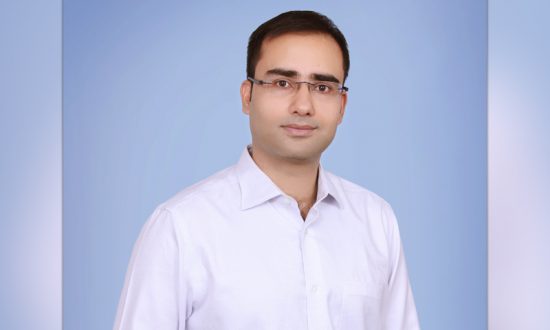Deepak Tuli is the Co-founder and COO of Eka Care. Before Joining Eka Care, he was one of the Co-founders of Goibibo, which was merged with Makemytrip. Over 16 years in the Digital industry, he started his journey at Indiatimes. Deepak is a believer and passionate about Indian digital opportunities. In his last avatar, it was hotel distribution digitization in India, at Eka Care, it is about digitizing the healthcare industry. His interests include reading, playing cricket, fitness and holidaying. Physical and mental fitness is the key to success.
This pandemic has made every individual, organization and government agency realize the importance of healthcare. We can easily conclude that Healthcare has become the prime focus and countries have started to re-evaluate their health infrastructure.
According to a report by McKinsey, a research consultancy, the telehealth utilization has stabilized at levels 38 times higher than before the pandemic. The report also found that consumer and provider attitudes toward telehealth have improved since the pre-COVID-19 era.
With the announcement of Ayushman Bharat Digital Mission (ABDM) by Prime Minister Narendra Modi, India has taken its first step towards structuring and further strengthening the healthcare of India. The concept of providing connected care is reshaping as major technology players have stepped up to assist the Government.
If we look at Healthcare, the ecosystem comprises the majority of doctors, diagnosis labs, hospitals and insurance companies. Caregivers have always remained the core of this system but enabling them with structured and organized data has been a challenge, which will soon be answered through technology. Organizing and making patient’s data accessible (after user’s consent) will complete the loop and connect all the dots.
Healthcare ID & Ownership of Health-Data
With ABDM, users will be required to self-register and generate a unique Health ID. This ID will be mapped to a patient’s health records, which can be accessed (after taking user’s consent) by players in the Healthcare ecosystem.
Presently, the ownership of health data is with multiple players, fragmented and unorganized. With Health IDs under ABDM, data will get organized and closely mapped to individuals. With consent manager, users will be able to give permission(s) to care providers to access their health records. Important identity documents like Aadhar Card and PAN card are required to create health ids; thus, linking individual’s ID with Health ID and medical records.
What’s in it for doctors?
Medical practitioners understand the importance of health records the most. The focus of organizing Health Data is to empower doctors with complete and correct Health information of their patients, to assist them in taking informed medical decisions. The long-term objective would be to:
- Share and Exchange patient data to serve as precedent to provide better healthcare
- Minimize paperwork and documentation while securely exchanging or getting patients medical records from another doctor/hospital, saving precious time
- Understand patients’ symptoms and earlier diagnosis by accessing their medical history. This should also prevent medical errors and incorrect diagnosis.
Health ID – Facilitating Exchange of Medical Records
A user can share his Health ID during his treatment/consultation with a care-provider. Post the treatment, users will be able to access the medical records created during the treatment, through his Health ID. The exchange of records will be seamless and easy for both the parties.
In a similar scenario, the care-provider can extract a patient’s older records through his Health ID for further treatment(s). Patients or care-providers can share medical records with a third party, within the ABDM ecosystem. The sharing is controlled by the patient through a consent manager, giving complete control and confidence in the system.
Beyond Connected Care
National Health Analytics Platform is part of the ABDM. This platform will provide a holistic view to the policy makers of the country to take an informed decision through predictive analytics. This has been established after considering the fact that the health of citizens is the backbone of an economy. The system will be robust and capable to combine information from multiple health initiatives and feed to a predefined system. The data will be promising while deciding health policies, at both State and National Level.


